Anger sparks Swiss-Catalan appetite for direct democracy
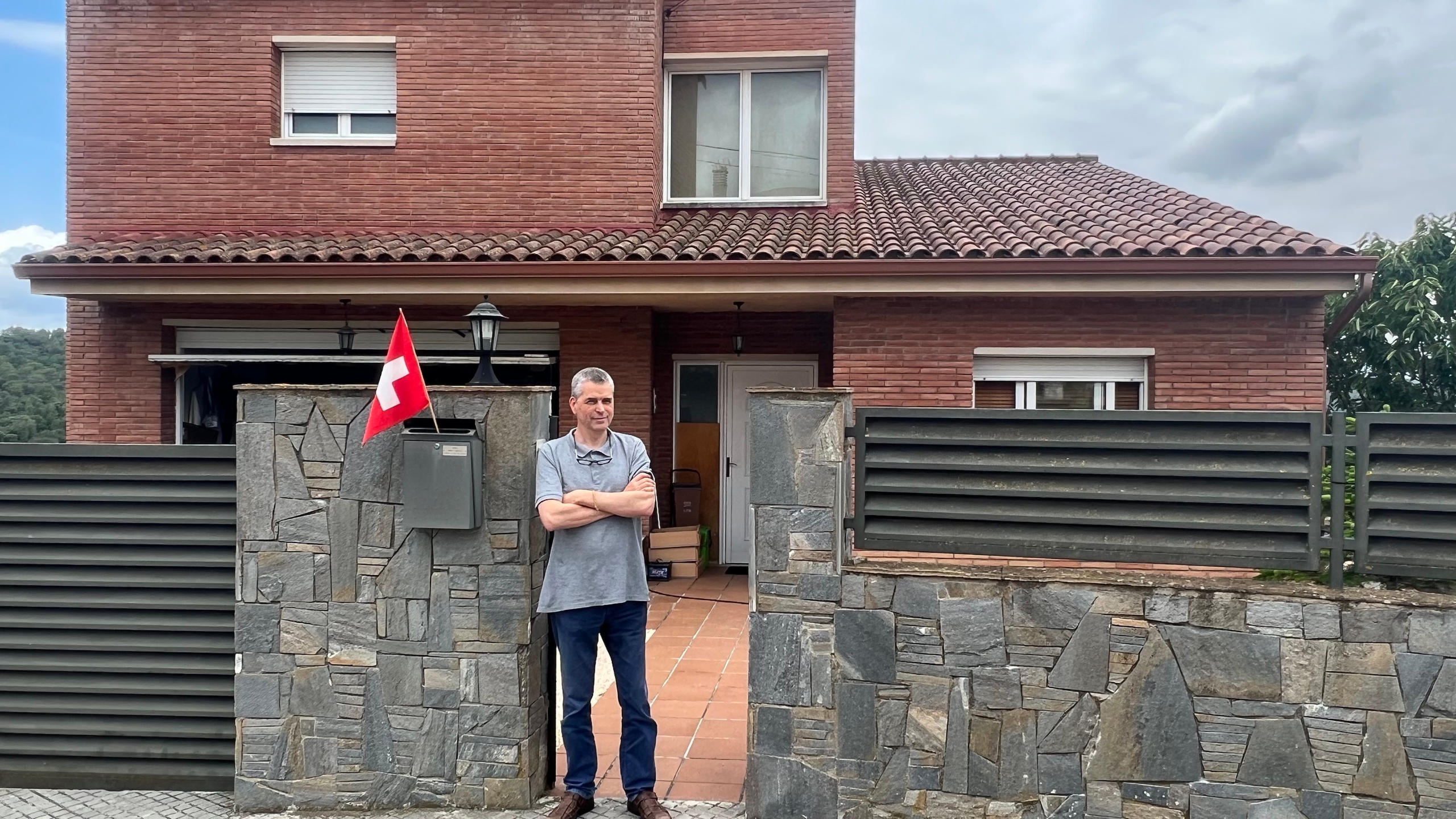
The first invitation to SWI swissinfo.ch’s global democracy correspondent came from the Spanish region of Catalonia. In a small town there, Patrick Renau whipped up interest in direct democracy drawing on his Swiss roots.
Granollers? Although I have visited the region of Catalonia in northeast Spain multiple times in recent decades, I had never heard of this particular town about 30km north of Barcelona.
“You’ll know you’re in the right place when you see the little Swiss flag on the letterbox,” read the directions Patrick Renau gave me to reach his house on a hill outside the town via suburban train and taxi.
“Come to Granollers and I will tell you why direct democracy is becoming so crucial here,” he said.
These were the words with which Renau had aroused my interest. He was one of the first people to respond to my call for Swiss Abroad to share their stories involving democracy.
I followed his directions, and sure enough, I found the mailbox for Família Renau i Castelló in the Barcelona suburb of Granollers. Patrick has lived there for two decades with his wife Lali Castelló and their adult children, Tània and Daniel .
They all hold Spanish citizenship. Born in Catalonia, they have lived all their lives in this autonomous Spanish region of 8 million people bordering France.
“Swiss through and through”
“Yet we are Swiss through and through,” Renau, who is an electrical engineer, tells me in the garden of his home. As if to demonstrate his Swiss roots further, he sets up a typically Swiss “Stewi” rotary clothes dryer there.
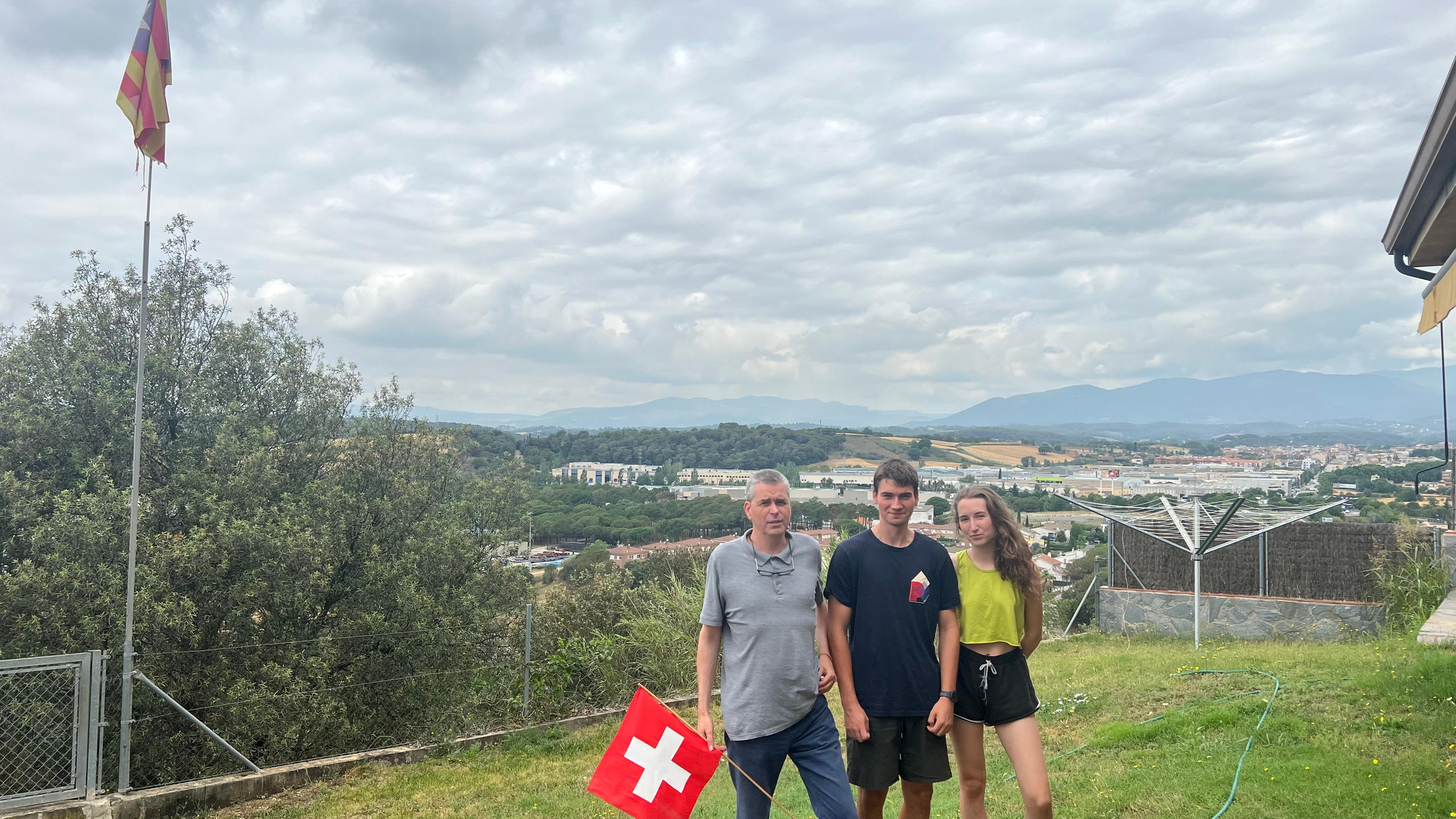
Besides the clothes dryer and the little Swiss flag, the family also flies the flag of Catalonia with its five yellow and four red stripes. “After all, we are in Catalonia here, not in Switzerland,” Renau adds. He goes on to tell me that he was always interested in politics in both countries, but had never intended to get politically active.
The “Volt Tour”
“I’m a hobbyist and fan of electro-mobility,” he says as he takes me into his garage, where we see an electric vehicle he built himself.
“Using the Swiss model of the Tour de Sol [the original rally for solar-powered cars], since the beginning of the millennium I have put on a rally for electric cars in the Pyrenees, which we call the Volt Tour,” he tells me.
Then came the fateful day of October 1, 2017. It was a day that changed Renau’s life. “I saw how people who wanted to take part peacefully in a referendum were baton-charged by military police and dragged away. Right here in Granollers,” he says. “I was so angry about that.”
On that day six years ago, the separatist Catalan government tried to hold its own plebiscite as to whether Catalonia should become an independent state within the European Union. It was opposed and declared illegal by the central government in Madrid.
Renau, who like most Catalans is pro-autonomy, found the brutal reaction from Madrid unworthy of a democracy. “I started to think how I might make things better,” he says.
Key moment: Swiss Abroad congress
Another turning-point for Renau was August 20, 2022. This time he was in the city of Lugano in southern Switzerland.
“For the first time I took part in the congress of the Swiss Abroad and heard the keynote speech by the Swiss president”, he recalls. “[Ignazio] Cassis told us that time in Lugano that we Swiss abroad are ambassadors for our country around the world.”
This fired him up and he started wondering “why can’t Catalonia build on Switzerland’s experience with direct democracy?”
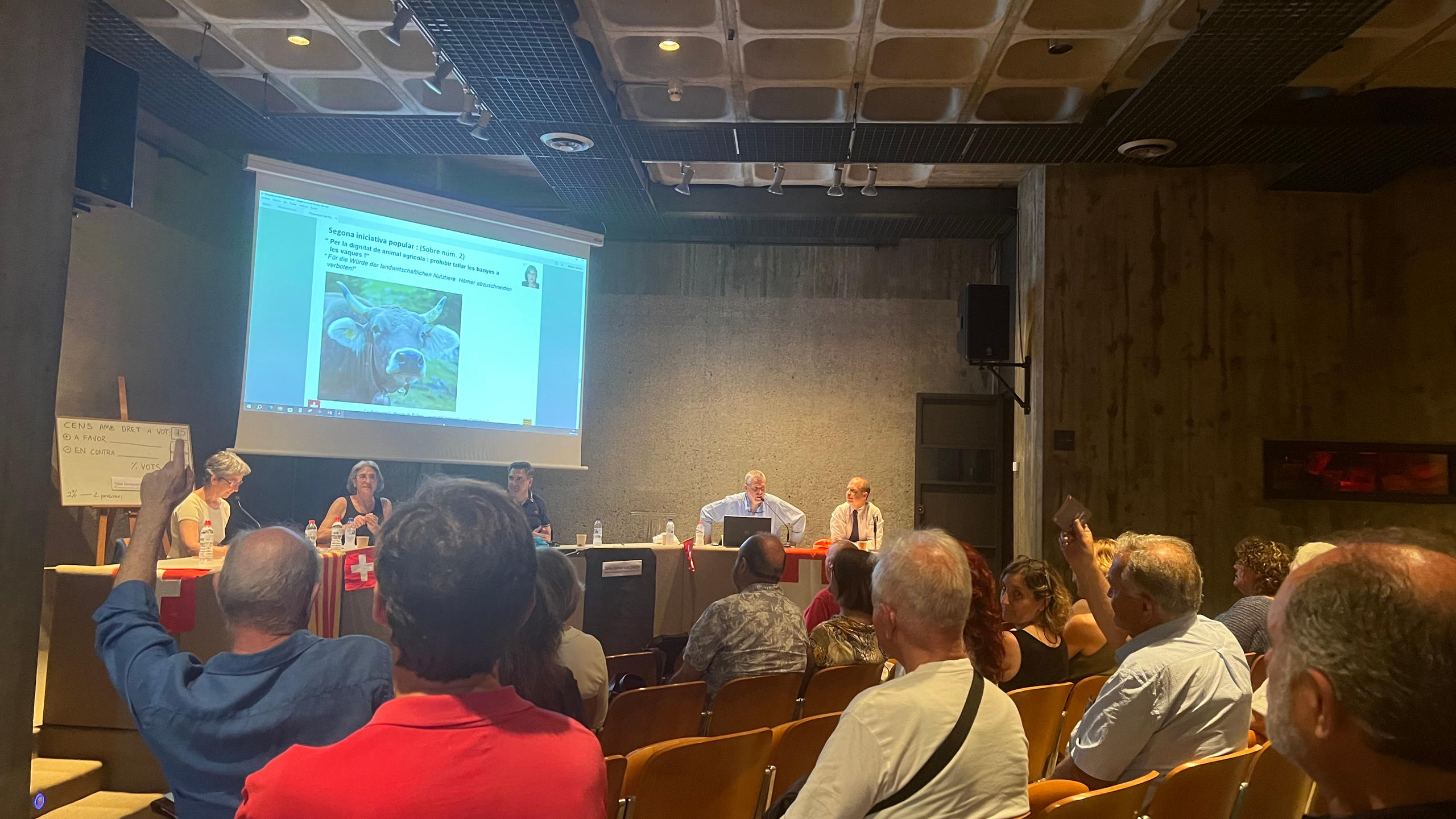
No sooner said than done. As a first step Renau, who is a dual citizen, sought out other Swiss abroad who might be living near him. “The consulate in Barcelona wouldn’t give me any help at all,” he says. “They were being careful, and were scared of Madrid.”
Yet Renau eventually found the people he was looking for – some Catalans by birth with Swiss roots, and some Swiss who had moved to Catalonia as adults.
Now, this summer evening, a committed team of citizens interested in exploring democracy join Renau in front of the town museum in Granollers, where they planned an information session and workshop about direct democracy based on the Swiss model.
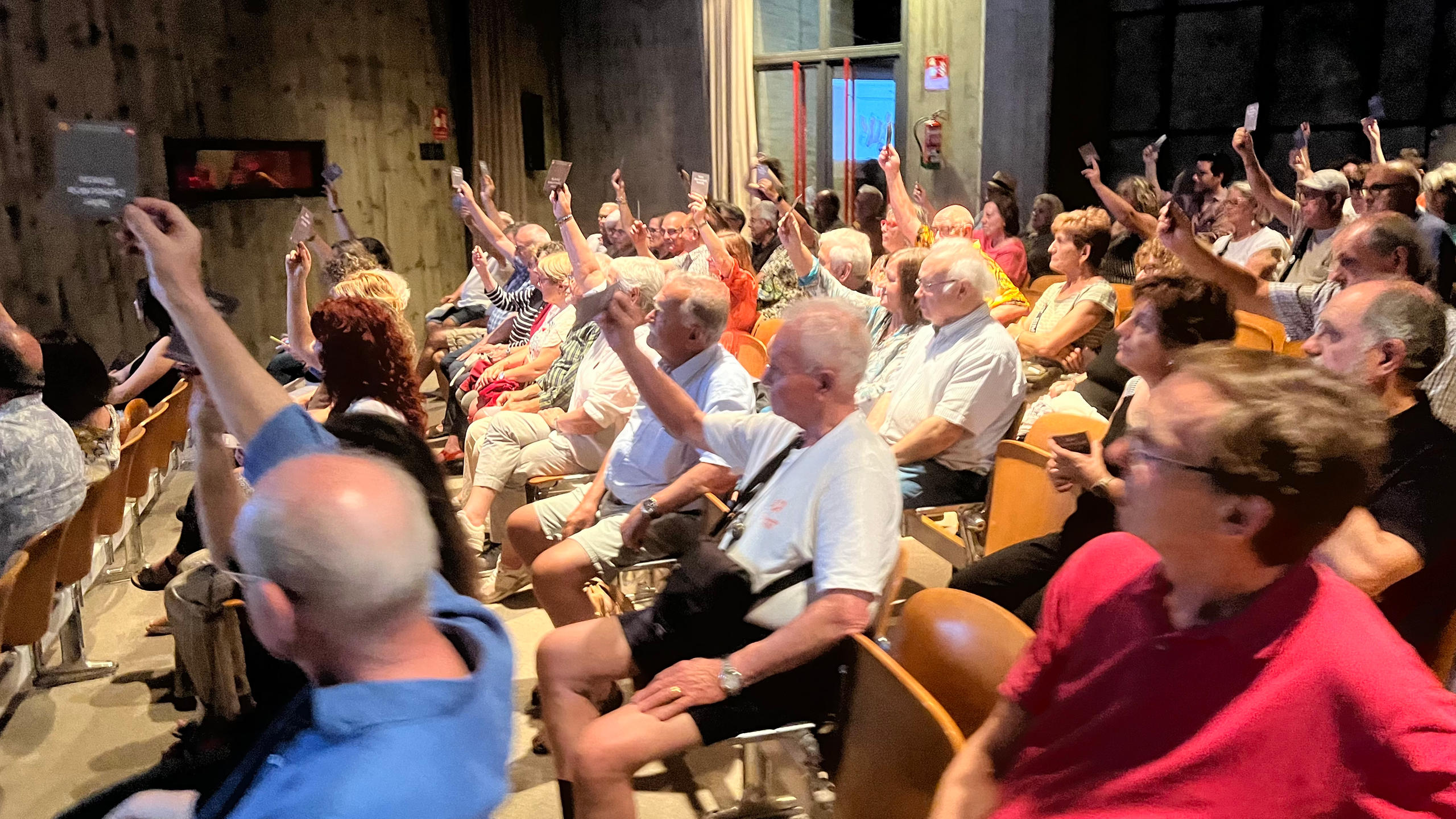
Direct democracy in a nutshell
Nearly eighty people show up in the meeting hall of the museum, which actually looks a bit like a parliamentary chamber. Admission costs two euros (CHF1.92), and attendees get a voting paper, which they can later use in a show of hands about two topics up for discussion.
The event walks the attendees through an entire people’s initiative and voting process in one go. In Switzerland it would actually take up to five years to complete all the stages.
“Patrick asked me to act as parliamentary speaker tonight,” says Fidela Frutos in fluent German. “Of course I was happy to do it.” Her father emigrated from Frankfurt to Catalonia. Frutos belongs to the team working with Renau. They show people how direct democracy actually works – from the gathering of signatures to the discussion in Parliament to the binding popular vote.
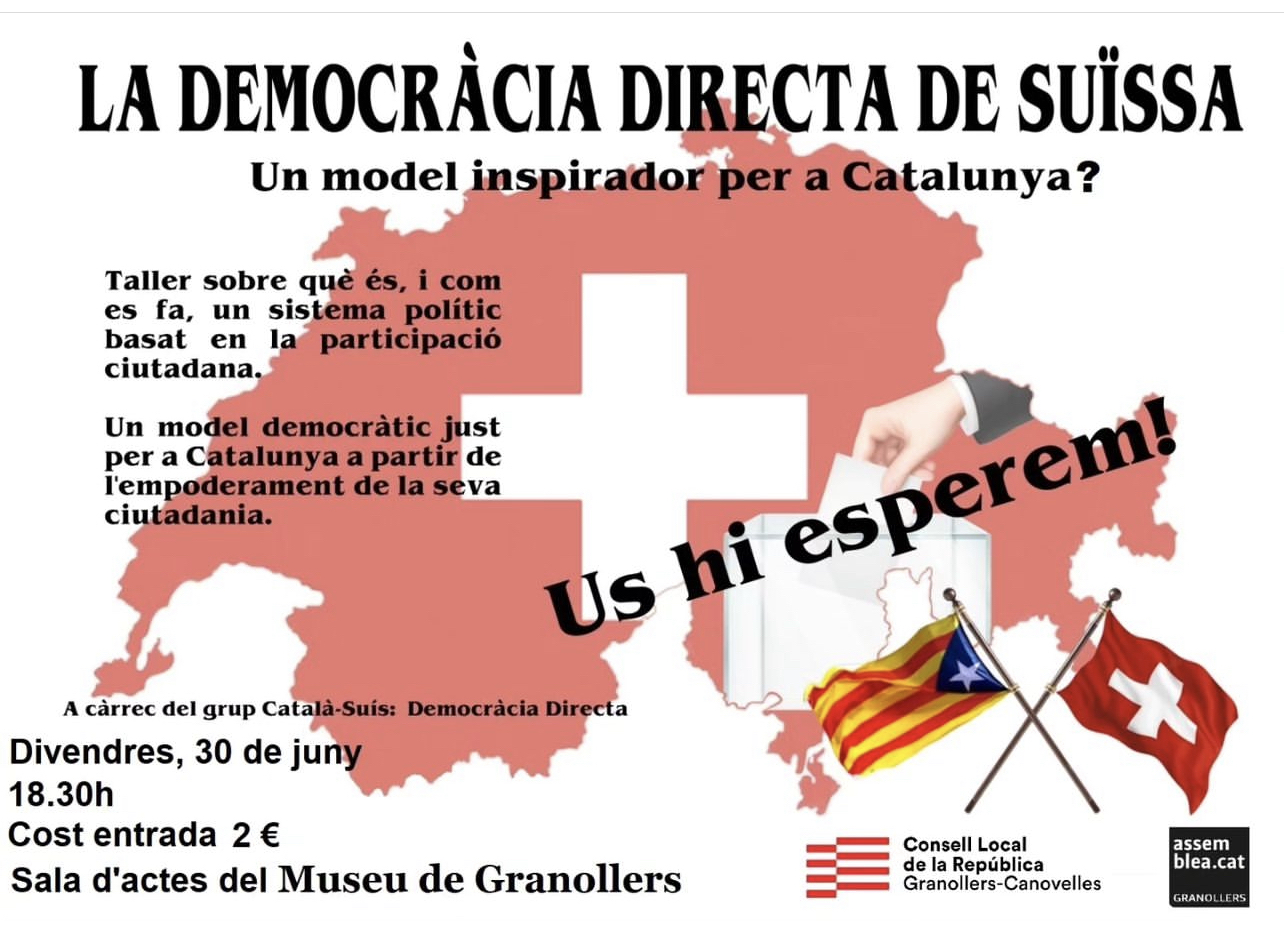
The whole exercise lasts about three hours. There is plenty of laughter, but also arguing and shouting.
“Just remember we are not quiet, stolid Alpine folk. We are Mediterrranean people,” Renau tells me later, almost apologetically. The audience tonight includes many politicians from the local and regional level.
Elena Pera hails from Girona in the north of Catalonia. “I really do hope”, she says, “that democracy can develop further in this country and that my young son will one day be able to take part in decision-making about all kinds of important things.”
Renau and the people with him are happy and relaxed at the dinner that follows – as usual here it begins well after ten o’clock at night – but tired too. “That was a lot of work!” exclaims Renau.
Already two other local towns have expressed interest in Swiss-style direct democracy. In the autumn they want to hold another event with his team, Renau tells me. When we say goodbye, the night is still warm. And as a democracy correspondent, I am glad to have been invited to sample Swiss democracy with a Catalan twist.
Edited by Mark Livingston. Translated from German by Terence MacNamee/ds
Invite our democracy correspondent to visit
This article was a result of our democracy correspondent’s open call to the Swiss Abroad to let him know about interesting developments regarding democracy in the country where they live.
Do you have a story to tell? Let us know about it, and invite our correspondent to visit.

More
We want to hear your democracy stories

In compliance with the JTI standards
More: SWI swissinfo.ch certified by the Journalism Trust Initiative

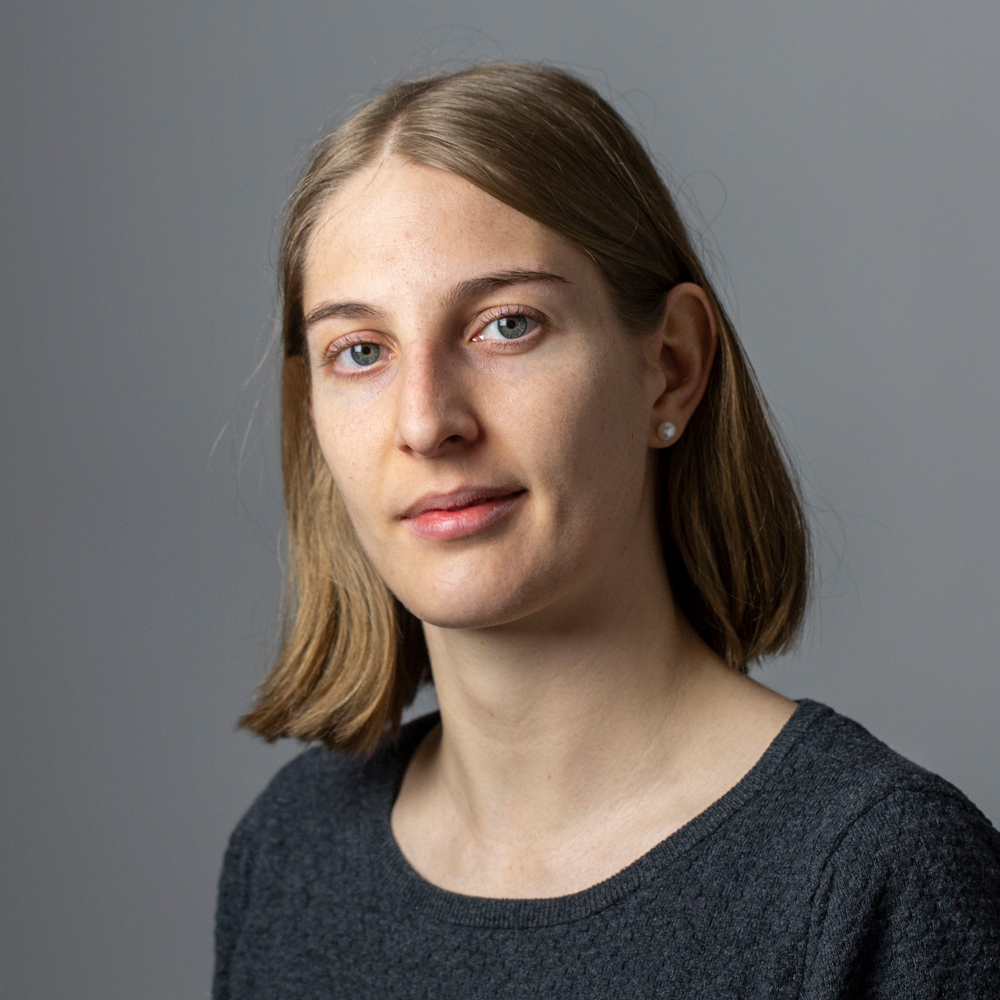








You can find an overview of ongoing debates with our journalists here . Please join us!
If you want to start a conversation about a topic raised in this article or want to report factual errors, email us at english@swissinfo.ch.